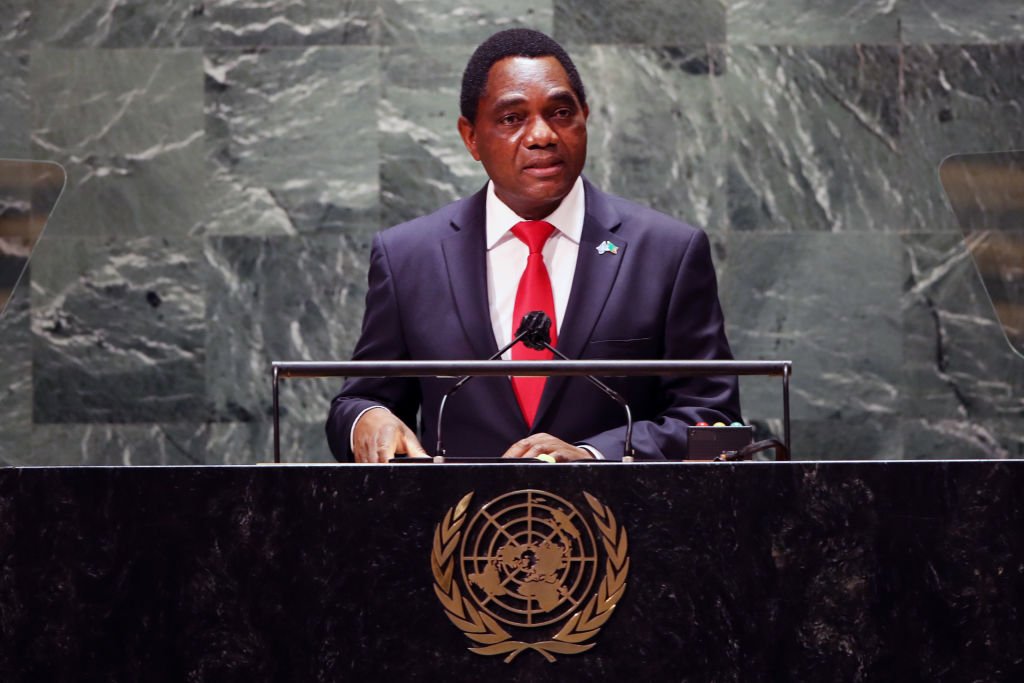
Introduction
Zambia's opposition parties have been facing relentless restrictions on public gatherings and expression, under President Hakainde Hichilema's administration, since August 2021, as described in the sections below.
Peaceful Assembly
Promises to reform outdated Public Order law still unmet
Despite promises to reform the outdated 1955 Public Order Act with a progressive Public Gatherings Bill, the government has instead regressed, using security forces to suppress fundamental rights like peaceful assembly, association and expression.
The police consistently deny opposition parties the right to hold public rallies and meetings, citing security concerns. This repression has escalated, with intensified attacks on opposition parties and harassment of journalists, undermining democratic freedoms and prompting international concern.
For instance, on 8th June 2024 heavily armed security forces shut down a Socialist Party rally in Kitwe even after granting permission. Similarly, on 18th May 2024, police disrupted a meeting between Bishop Clement Mulenga and former President Edgar Lungu, accusing them of holding an illegal gathering. Although the law requires only seven days’ notice for conducting public gatherings, the police misinterpret this provision as needing formal authorisation, further limiting opposition activities.
Four Arrested in Lusaka for protesting against loadshedding at Zesco headquarters
Kariba Dam has an impact on hydroelectric power output, resulting in up to 12-hour daily power outages. As a result, the youth-led Protest Movement under the Hashtag “Fix Zesco“, planned a protest that was scheduled on 10th July 2024 at Zesco's headquarters in Lusaka but the police prevented the protest. The youth-led Protest Movement expressed concerns about the poor handling of loadshedding schedules and the absence of transparency in Zesco's strategies for resolving the problem. Four protestors, including leader Nawa Sitali, were arrested and taken into custody by police on charges of "idle and disorderly conduct."
Expression
Criminal defamation law still in use despite abolition
Despite President Hichilema abolishing criminal defamation of the president in 2022, opposition leaders continue to face arrest for exercising their right to freedom of expression. On 17th May 2024, Raphael Nakacinda, secretary-general of the Patriotic Front, was sentenced to 18 months in prison for defaming President Hichilema despite the defamation law being repealed. His conviction stemmed from remarks made in 2021, accusing Hichilema of pressuring the judiciary. While the colonial-era law was repealed to encourage democracy, pre-repeal cases like Nakacinda’s are still being prosecuted. According to the judge who adjudicated the case, his sentencing, intended to serve as an example to those who disrespect the judiciary.
Journalists arrested and harassed while covering banned opposition rally
On 13th April 2024, Zambian journalists Rodgers Mwiimba (Millennium TV) and Innocent Phiri (KBN TV) were arrested by police in Kafue while covering a banned rally protest by the United Kwacha Alliance, which wasn’t allowed because the group wasn’t registered. The journalists were filming a clash between the police and opposition leaders when they were detained. Phiri was forced into an armoured vehicle and Mwiimba, even after showing his journalist ID, was kicked and arrested.
At the Kafue Police Station they were questioned, told to delete their footage and released after about two hours without charge. Mwiimba called the experience traumatising and said he was physically abused by the police. The Committee to Protect Journalists (CPJ) criticised the arrests and called for an investigation.
Journalist faces prison for exposing corruption
On 6th August 2024, Thomas Allan Zgambo was arbitrarily detained for two days for allegedly disseminating seditious materials and challenging the government's openness about a property connected to President Hakainde Hichilema. He was then released on bail. Hichilema pledged in 2021 to increase press freedom, but harassment and arrests of journalists remain a problem in Zambia. If charged, Thomas Allan Zgambo could spend up to seven years behind bars for his reporting on matters of governance and corruption. Amnesty International has criticised the arrest and has called on Zambian authorities to immediately release Zgambo for simply exercising his right to press freedom.